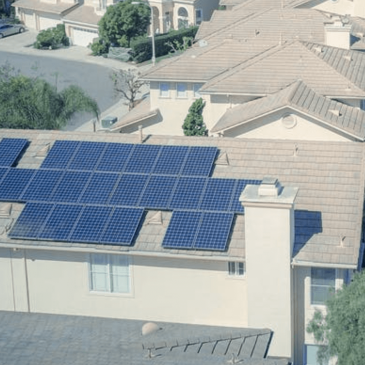Do I Have Enough Solar Panels? How Can I Be Sure?!
To get all the benefits you expect from your solar system, one of the most important things you need to do is to make sure you have calculated the right amount of solar panels for your home. The reason is because your solar panels are what absorb the sun’s rays, so you can only generate as much energy as your panels are able to take in.
But before you can start calculating your solar panel needs, you will first need to find out how much electricity your home uses and how much of that demand you want your solar panels to provide.
Calculating Your Home’s Daily Electricity Use
A “watt” is the unit used to measure quantities of electrical power. A kilowatt, or kW, is equal to one thousand watts and it is the amount of power an electrical device uses to run. So, when you read that something is rated in kWh, what that means is that the kWh number is the amount of energy that an appliance uses every hour. For example, if you have an appliance rated at 2-kW and it is left on for an hour, it will use 2-kWh of electricity.
To calculate your home’s daily electricity use quickly, grab a copy of your electricity bill and look at your total kilowatt-hours for the month. Divide that number by the number of days in the month for which the bill was created. The answer will tell you how much electricity you used per day on average.
This method above will only give you an average estimate, but that may be enough for you to determine how many solar panels you will need. But if you want a more accurate calculation of your energy use, you can work out the number of kWh used by each appliance in your home per day based on how long each one is on for. If you use the 2-kWh appliance example, it will use 10-kWh of electricity if it runs for 5 hours per day. Using this method can be a lengthy process, but it will provide you with the most accurate number.
For comparison, in 2020, the average annual electricity consumption for a U.S. residential utility customer was 10,715 kilowatt-hours (kWh). This averages to about 893-kWh per month.
Determining Your Solar Panel Requirements
Now that you know your daily kWh use, the next thing you need to do is to find out what your peak sunlight hours are. The peak sunlight hours for your particular location has a direct impact on the amount of energy you can expect your home solar system to produce. The Renewable Resource Data Center is where you can find this information for the state or major city you live in.
Next, you will want to take your daily kWh and divide that number by 24. The answer will tell you your home’s hourly electricity use. Multiply your hourly usage by 1,000 to convert your hourly power generation need to watts.
Divide your average hourly wattage requirement by the number of daily peak sunlight hours for your area. This answer will tell you the amount of energy that you will need your panels to produce every hour. So, if we round up the 2020 average monthly kWh use to 900 kWh/month, and that home is in an area that gets five peak sunlight hours per day, then it would need solar panels capable of producing 6,000 watts per hour.
How Many Solar Panels Will You Need?
When it comes to calculating the number of solar panels your home will need, it is important to remember that quality makes a difference and that not all solar panels are the same. Photovoltaic (PV) solar panels are the most common used in residential installations and they typically come in wattages ranging from about 150 watts to 370 watts per panel, depending on their size, efficiency, and the type of cell technology used to make them.
To determine how many solar panels you will need, divide your home’s hourly wattage requirement by the solar panels’ wattage. Based on the above information, for your solar panels to produce 6,000 watts per hour, you would need 17 panels, if your panels produce 370 watts each. If you purchase 150-watt solar panels, then you would need 40 panels to produce the same amount of electricity.
Work With a Solar Panel Installer You Trust
If you don’t like doing mathematical equations or want an easier and less hands-on way to determine your solar panel needs, then do your due diligence and find a solar installer you can trust. Explain to them what you are looking for your solar system to achieve, and they will help you determine which types of panels, and how many, will help you meet both your needs and budget.

